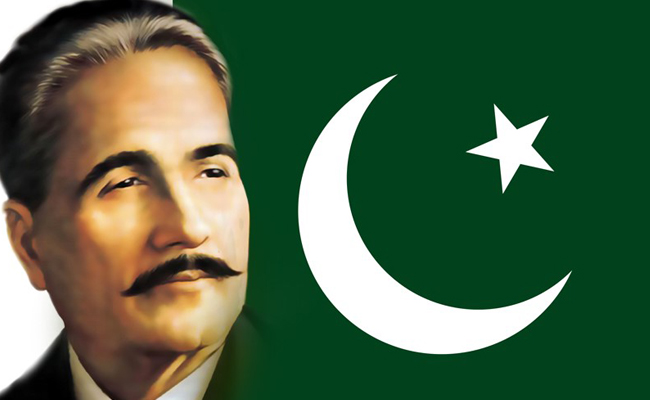Allama Iqbal: The Visionary Poet of the East
Introduction
Hazrat Allama Muhammad Iqbal, often referred to as the "Poet of the East," was a philosopher, poet, and politician in British India who is widely regarded as having inspired the Pakistan Movement. His profound literary contributions, particularly in Persian and Urdu poetry, have left an indelible mark on the cultural and intellectual heritage of South Asia.
Early Life and Education
Iqbal was born on November 9, 1877, in Sialkot, in what is now Pakistan. His early education was at a traditional madrasa and later at Scotch Mission College in Sialkot. Recognizing his extraordinary intellectual abilities, his teachers encouraged him to pursue higher education. Iqbal went on to earn a degree in philosophy from Government College Lahore. He later traveled to Europe, where he studied at the University of Cambridge, obtained a law degree from Lincoln’s Inn, and earned a Ph.D. from the University of Munich with his dissertation on Persian metaphysics.
Literary Contributions
Iqbal's poetry is characterized by its deep philosophical and spiritual content, along with a profound message of awakening and self-realization. His works can be broadly divided into two languages: Persian and Urdu.
Persian Poetry
Asrar-e-Khudi (Secrets of the Self): This is one of Iqbal's most famous works, written in Persian. It explores the concept of the self, emphasizing the importance of self-identity and the individual's role in shaping their destiny.
Rumuz-e-Bekhudi (Secrets of Selflessness): A sequel to "Asrar-e-Khudi," this work delves into the idea of collective self and the importance of community and unity.
Urdu Poetry
Bang-e-Dra (The Call of the Marching Bell): This collection includes some of Iqbal's earliest poems, reflecting on themes such as patriotism, spirituality, and social justice.
Bal-e-Jibril (Gabriel's Wing): In this collection, Iqbal emphasizes spiritual and intellectual awakening, encouraging the youth to rise and take charge of their destiny.
Zarb-e-Kalim (The Rod of Moses): A poetic manifesto, this book critiques Western materialism and underscores the importance of spiritual awakening and moral values.
Armughan-e-Hijaz (The Gift of the Hijaz): This is one of Iqbal's later works, containing both Persian and Urdu poetry, reflecting his mature philosophical thought.
Philosophical Thought
Iqbal's philosophy is deeply rooted in Islamic teachings and Sufism, but it also incorporates elements of Western philosophy. He was a firm believer in the potential of the individual and the power of self-realization. His concept of "Khudi" (self) emphasizes the development of the individual’s spiritual and intellectual capabilities, leading to a higher state of consciousness and existence.
Iqbal was also a proponent of Pan-Islamism, advocating for the unity of the Muslim world. His vision for a separate Muslim state in the Indian subcontinent laid the intellectual groundwork for the creation of Pakistan. He believed that Muslims in India needed a separate homeland where they could live according to their cultural and religious values.
Political Influence
Beyond his literary achievements, Iqbal was an active political figure. He served as a member of the Punjab Legislative Council and was a prominent leader in the All India Muslim League. His famous address at the Allahabad session of the Muslim League in 1930 is considered a significant moment in the history of Pakistan's creation, as he articulated the vision for an independent Muslim state.
Legacy
Allama Iqbal's legacy transcends his poetry and political activism. He is celebrated as a national poet in Pakistan, and his birthday is a public holiday. His works continue to inspire generations of readers and thinkers around the world. The concepts of selfhood, spiritual awakening, and intellectual freedom that permeate his writings remain relevant in today's world, encouraging individuals to strive for personal and collective excellence.
Conclusion
Allama Iqbal was not just a poet; he was a visionary whose ideas and writings have left a lasting impact on the cultural, philosophical, and political landscape of South Asia. His call for self-realization, unity, and spiritual awakening continues to resonate, making him a timeless figure in the annals of history. Through his profound poetry and philosophical insights, Iqbal has etched his name as a guiding light for future generations.


